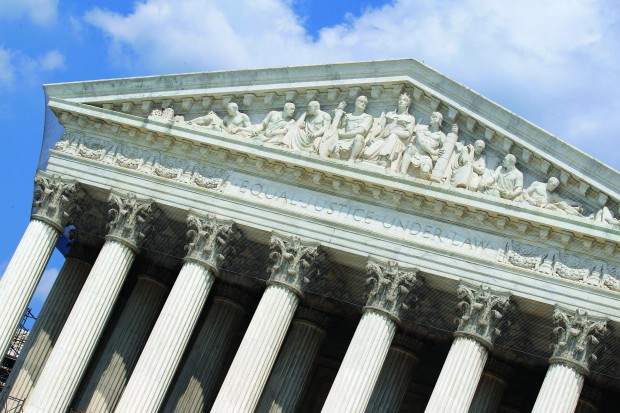How to Take a Case to the Supreme Court

Formed in late 18 century, the United States Supreme Court is the final legal authority in the US, with the ultimate power of overruling decisions made by lower or state courts. The Supreme court’s decision is final, and sets a precedent for everyone to follow.
According to the Rule of Four, four justices need to be in favor of granting a specific petition for writ of certiorari for the case to be sent to the Supreme Court. The chances of your case being heard by the Supreme Court are usually low.
Instructions
-
1
Your case will be initiated in the District or Federal court. The losing party will then have the option to take the case to a higher court, provided they don’t agree with the judgment. Although it may sound foolish, but you will need to lose your case in the lower courts in order to exercise the option of taking it up to the Supreme Court.
-
2
Follow guidelines on how you can take the appeal higher. If you feel that the verdict is unsatisfactory, the state’s appellate court – the intermediate court between the District and Supreme - will hear your case before you will be given a specified period to have your appeal heard by a higher court. Make sure to keep note of the deadline for the appeal. In extreme circumstances, the cases move directly from District courts to the Supreme, depending on national or constitutional importance. The United States v Nixon (1973) is a clear example of cases carrying greater weightage, forcing the Supreme courts to take notice.
-
3
Even though you have filed your case with the Supreme Court, it is unlikely that your case with be heard. A panel of nine sits down to pick relevant cases, with only a handful being reviewed. Given their resources and time, it is reported that only 1-2% cases are heard by the Supreme Court. For a general rule, cases which are of ultimate significance, or those decisions which are unsatisfactory in the eye of the Supreme Court are heard, keeping in mind constitution and federal laws. Supreme Court does not associate itself with cases that are intellectually controversial.
-
4
If you are one of the lucky few whose cases are reviewed, make sure that it carries constitutional significance. You should be clear in your terms and must have sufficient backing in regards to the laws, which you feel have not been interpreted clearly by lower courts.







